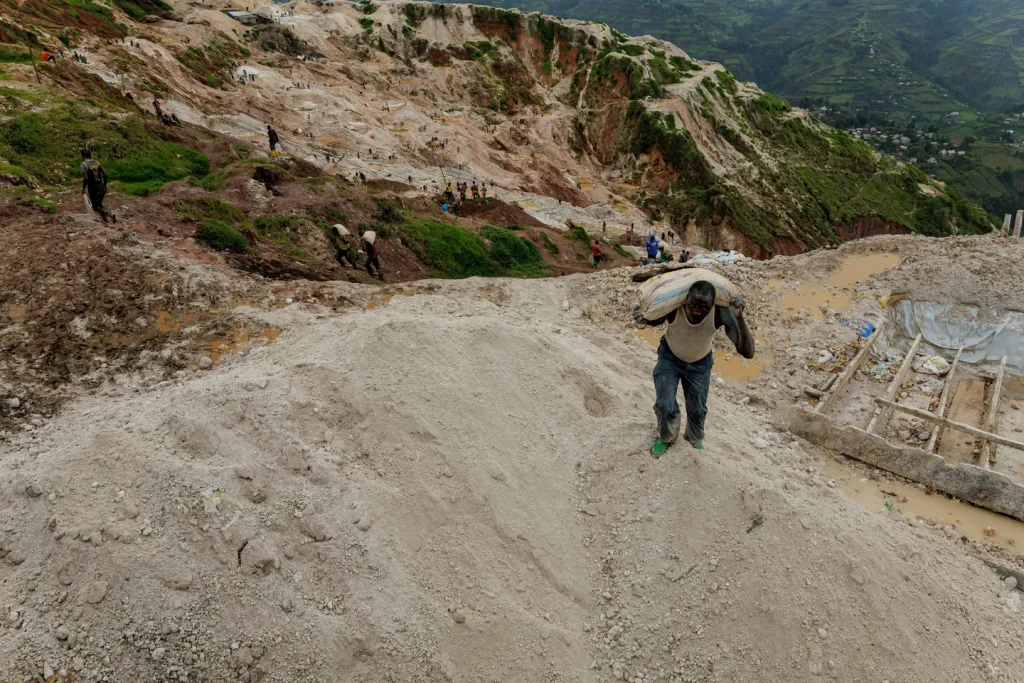At least 16 miners have died following a pit collapse at the Rubaya coltan mine in North Kivu, located in eastern Democratic Republic of Congo (DRC), local sources confirmed on Friday.
The mine, which supplies between 15 and 30 percent of the world’s coltan—a key mineral used in the production of electronic devices such as smartphones and laptops—is currently under the control of the M23 rebel group, which is reportedly backed by Rwanda.
The landslide occurred on Thursday morning while approximately 131 diggers were working at the site. According to Emmanuel Ndizeye, a local official appointed by M23, 111 miners were rescued. Authorities recovered 16 bodies, while four workers remain unaccounted for.
The M23, which resurged in 2021, has seized vast areas of eastern DRC, including the strategic Rubaya mine in April 2024. Their territorial expansion has worsened the long-running conflict in the region, where over a hundred armed groups and foreign interests compete for access to valuable mineral resources.
Since taking control of Rubaya, the M23 has reportedly established a parallel administration to regulate the mine’s operations. United Nations experts estimate the group generates around \$800,000 monthly from the mine, largely through a \$7-per-kilogram tax on coltan production and sales.
However, the group’s revenue from the mine is only a portion of its broader earnings from taxes imposed on trade across territories under its control. The UN has accused Rwanda of backing the M23 and exploiting the region’s mineral wealth through the militia—claims Rwanda has consistently denied.
The mineral-rich eastern DRC contains up to 80 percent of global coltan reserves and is also known for significant deposits of gold and tin. Due to the M23’s military advances and ongoing instability, several international mining companies have suspended their operations in the region.



